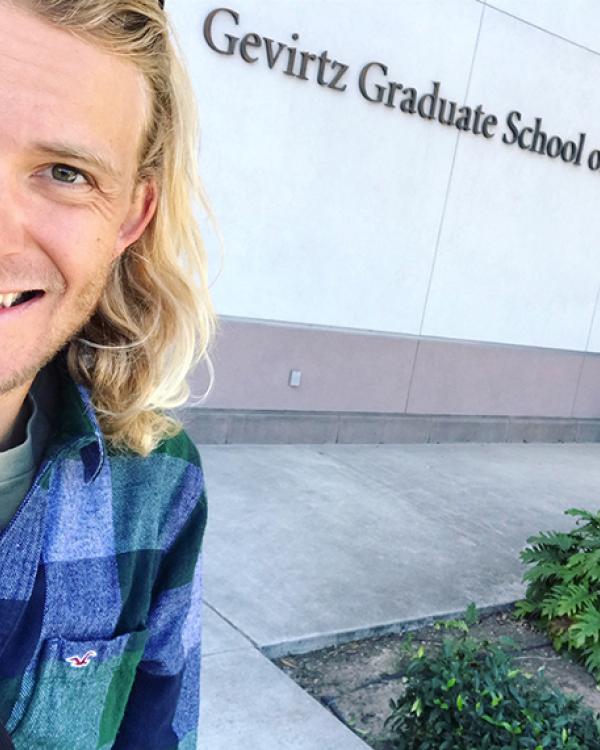
Matthew Shackley, a doctoral student in the Department of Education, has earned his MA. He is working under the advice of Dr. Julie Bianchini, pursuing an emphasis in Science Education and Cognitive Science. He received a B.S. in Biological Sciences from the University of Nevada, Las Vegas in 2014 and a M.S. in Teaching and Learning from Colorado State University in 2017. His research interests are borne out of a belief that improved scientific literacy across the population is vital to addressing social, economic, and environmental issues in the 21st century. He is particularly interested in culturally relevant models of science education as and for participation in community activity.
GGSE: Tell us a little bit about your MA work.
Shackley: For my MA project, I used data with preservice science teachers from teacher education programs across the UCs gathered as part of the Science and Mathematics Teacher Research Initiative (SMTRI) led by my advisor Julie Bianchini. We have been working with the data since I entered the Ph.D. program here at GGSE. Through this work, I noticed differences in the ways teacher candidates talked about the goals or purposes for teaching science. I ultimately decided to focus on teachers' "conceptions of purpose" for teaching science for my master's project, how those conceptions are shaped by teachers' lived experiences and how it affects their discussions of engaging diverse learners' funds of knowledge in science education.
GGSE: What are the implications of the conceptions and beliefs of biology teachers?
Shackley: I identified three broad conceptions of purpose, what I called canonical, transferable, and social goals of science education. Generally speaking, candidates who prioritized canonical goals, entrance into the so-called STEM pipeline, were less likely to discuss engaging students' funds of knowledge beyond gaining initial interest in science. Candidates who prioritized social and transferable goals were more likely to elevate diverse funds of knowledge as resources for meaning making or a means to position students as experts with valuable knowledge in their own right.
GGSE: How has GGSE impacted your passion for education?
Shackley: I worked as a middle school science teacher before enrolling at GGSE and already had a deep passion for education. My work here has expanded my passion for teacher education and the important role this can play in shaping more effective and equitable educational systems.
GGSE: What’s next for you?
Shackley: I am currently working on my qualifying exams in order to advance to candidacy for my Ph.D. I am excited to continue teaching in the Teacher Education Program and in the Environmental Studies department during the coming school year.
GGSE: Are there people at the Gevirtz School you would like to thank?
Shackley: I would like to thank my advisor Julie Bianchini for all of her help and guidance so far and for Chuck Bazerman for participating as a member of my committee. I'd also like to thank Diana Arya for giving me the opportunity to participate in important community outreach work through the Community Based Literacies umbrella and for being an integral member of my committee. Of course, the most influential folks at GGSE are the students, my colleagues. I am immensely grateful to them all for their important work that inspires me every day.